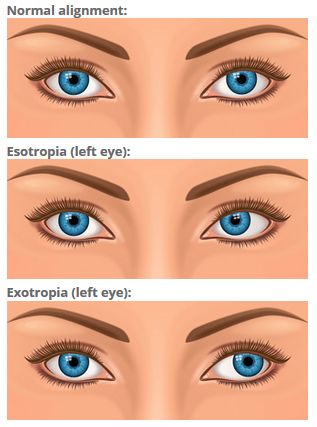6 causes of double vision (diplopia)

Double vision? If you suddenly start seeing double images when your eyes normally work well together, you should take it seriously.
Even if your double vision (also called diplopia) is only temporary, you should still contact your optometrist to determine what is causing it.
Causes of double vision
Temporary episodes of double vision can happen for many reasons, including drinking too much alcohol or being overly tired. This type of short-term double vision is usually not a cause for worry.
However, if the diplopia is long-lasting or keeps coming back, reasons for it can include:
Stroke, head injury, brain tumour, brain swelling or brain aneurysm
A head or brain injury, tumour, stroke or related condition can cause double vision that comes on suddenly. After examining you, your optometrist may refer you to a specialist such as a neurologist or neurosurgeon for further testing and treatment.
Corneal irregularities
Double vision also can be caused by diseases of the cornea, such as keratoconus and corneal dystrophies. Diplopia from corneal irregularities often can be managed with special contact lenses or dry eye treatments such as eye drops or punctal plugs. In some cases, surgical procedures such as a corneal transplant or implants may be required. Your optometrist can help you determine the best treatment for your double vision.
Dry eyes
Severe dry eyes, such as Sjogren's syndrome, can cause diplopia due to insufficient or poor quality tears. Many people who suffer from dry eyes can be helped by eye drops, punctal plugs, eye vitamins, lid hygiene techniques or a combination of all these treatments.
Refractive surgery
If you have had LASIK, PRK, or any refractive surgery to help you see better without glasses or contacts, you may experience temporary double vision because of changes to your corneas.
An irregular corneal surface, caused by the surgery itself or by dry eyes after the procedure, may cause light rays to scatter instead of focusing properly.
This problem usually clears up within a few days or weeks after surgery but you may need to use eye drops for a while. In some cases, a second laser vision correction procedure might be necessary to completely eliminate the diplopia.
Cataracts
Cataracts may also cause double vision. This is because the clouding of the eye's natural lens can cause light rays to scatter in different directions, creating multiple images, especially when you look at lights. Cataract surgery will often eliminate this problem.
Cranial nerve palsies
Double vision also can be caused by paralysis or loss of coordination of one or more muscles that control the position and teaming of the eyes due to a cranial nerve palsy.
Cranial nerve palsies can be caused by diabetes, head injury, tumour, multiple sclerosis, meningitis, high blood pressure, blockage in an artery or an aneurysm.
Most cranial nerve palsies go away without treatment when the condition that caused them improves but some people may need surgery or special prism lenses in spectacles to help with the double vision.
Double vision and strabismus
Obviously, most of us don't expect to see double images. In truth, the ability to see a single image with two eyes involves a complex system of muscles, nerves and other eye parts.
When two eyes correctly and accurately point and focus at the same time, we see only one image of the world. When two eyes point and focus differently from each other, double vision may occur.
Some people are born with eyes that don't work together, a condition called strabismus. Eyes can be crossed inward or turn outward. One eye can even go up while the other goes down.
If you have strabismus, you will see double if your brain allows it, because each eye sees a different thing at the same time. The brain usually adapts to this situation by shutting down or ignoring the information from one eye. This is called suppression. Surgery or vision therapy may help people with strabismus.
Diplopia treatment
Generally, treatments for double vision include, vision therapy, prism lenses in the glasses, or surgery and medications.

Double vision can occur when the eyes look in separate directions because of cranial nerve palsies, strabismus or other reasons.
It's important to have a comprehensive eye test as soon as possible to help determine the cause of the double vision. Your optometrist may then treat the diplopia or send you to a specialist (such as a neuro-ophthalmologist).
If you have sudden double vision that you ignore and then it goes away over a long time period, this may mean your brain has tuned out one of the images (suppressed it). Although this is certainly more comfortable and bearable for you, it is not a good sign. Suppression could be masking a serious problem that needs to be treated.
In fact, the condition may be a matter of life or death, such as a brain tumour or aneurysm. See your optometrist or GP immediately if double vision suddenly develops.
Some conditions that can cause double vision are difficult, if not impossible, to fix. Also, strokes and nerve palsies cause fluctuating double vision that can't be measured accurately enough to correct.
In these circumstances, you may need a period of adjustment so that you can learn to live with the symptoms. Your optometrist can help by prescribing prism, patching one eye for periods of time, or prescribing special contact lenses or other treatments.
Page published on Monday, 16 March 2020






